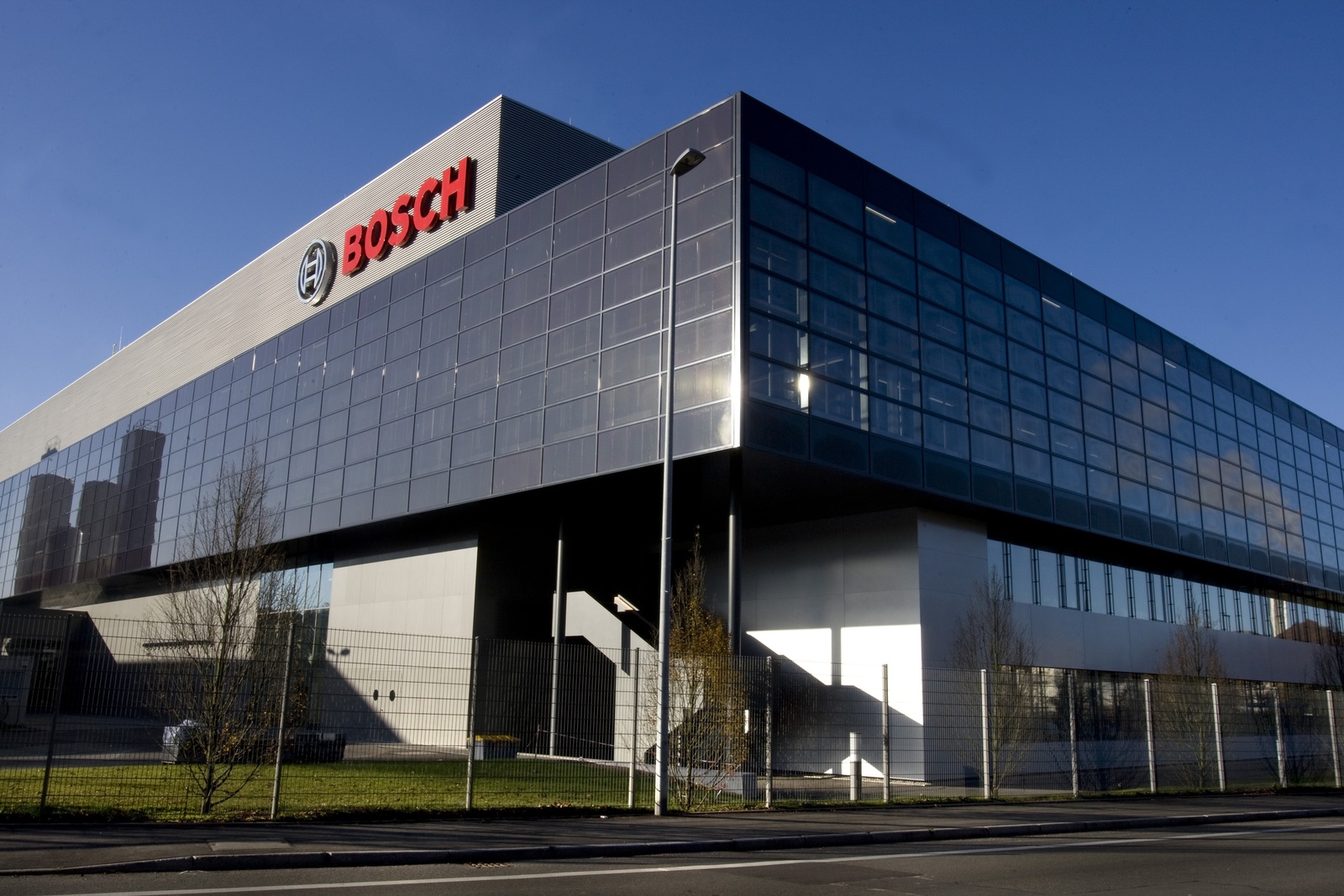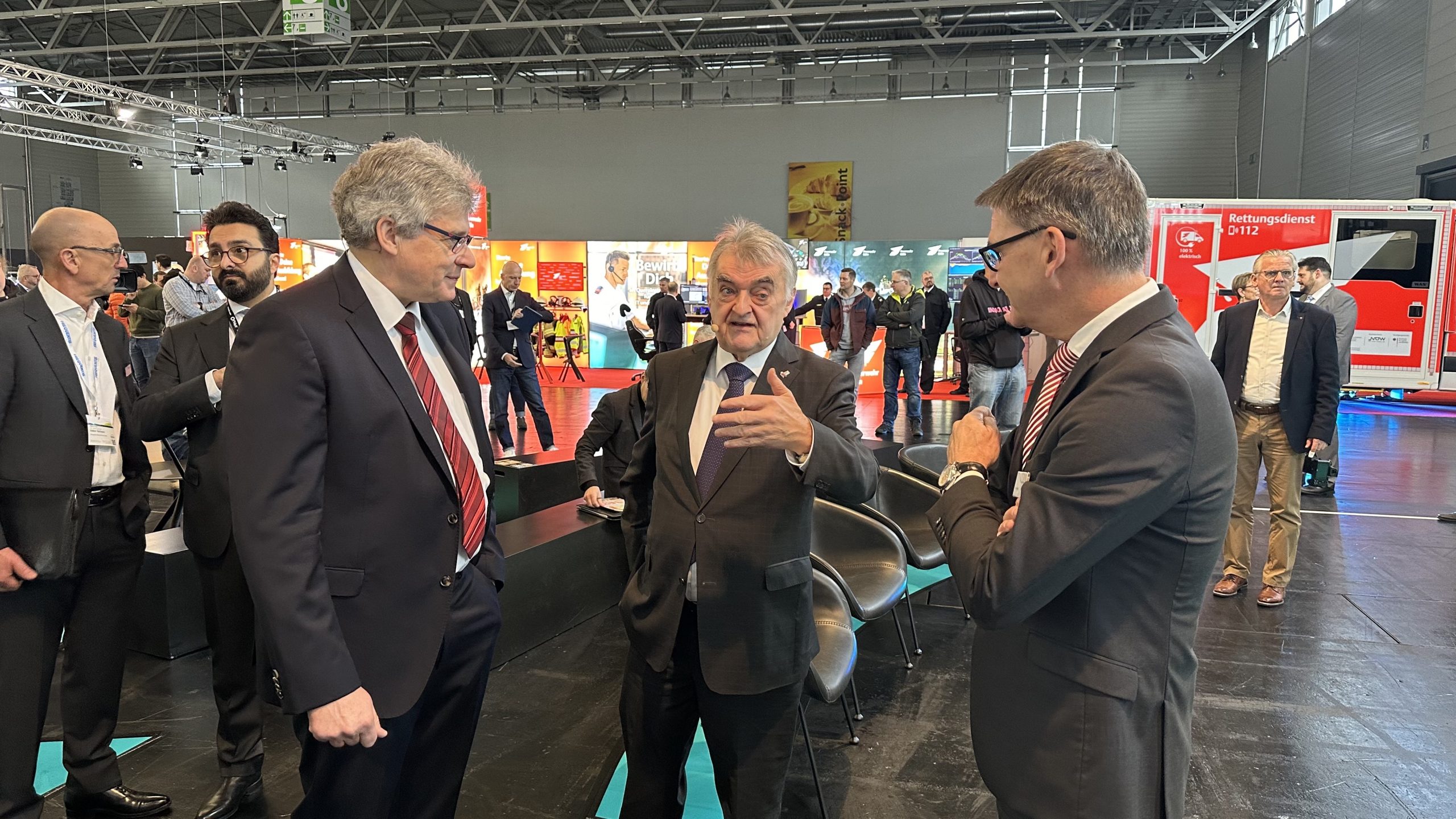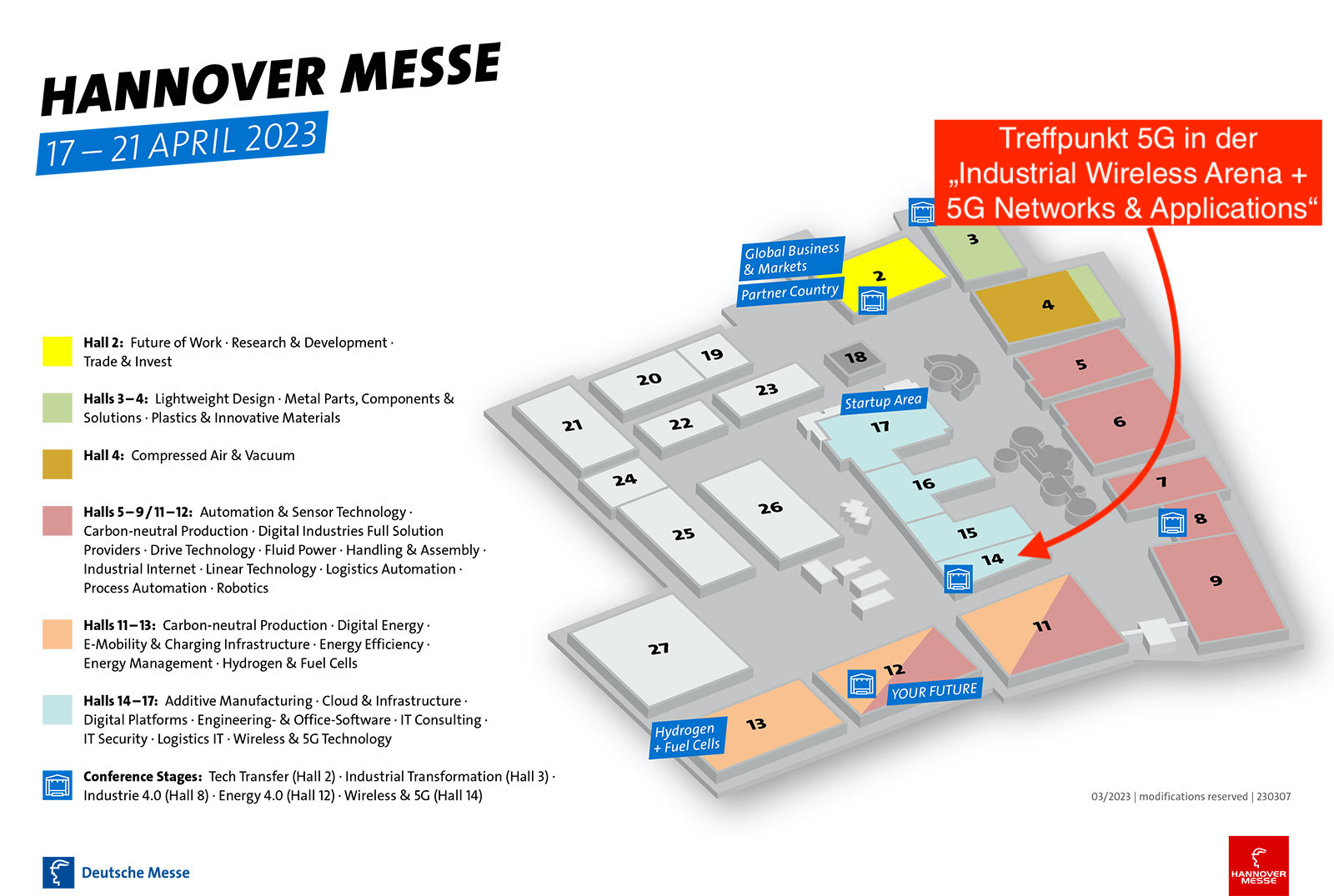The Bosch semiconductor plant in Reutlingen is participating in the international 5G-SMART research project with the aim of testing the potential of the new communication standard in real production environments. (Picture: Bosch)
Bosch relies on 5G as an important component for digitization and networking in production and logistics. The company is now starting compatibility tests and channel measurements for the construction of a 5G network at its semiconductor plant in Reutlingen.
The European Union funded 5G-Smart consortium to demonstrate and validate the benefits of 5G for the intelligent manufacturing of the future – preferably in real manufacturing environments. Therefore, the participating companies are testing integrated 5G manufacturing applications such as digital twins, industrial robotics and remote operations based on machine vision. They also say that the very first assessment of electromagnetic compatibility (EMC), channel measurements and coexistence between public and private industrial networks will be carried out in real manufacturing environments to facilitate 5G integration.
One of the companies involved in the international research project is Bosch. The common goal is to test, demonstrate and evaluate the potential of the new communication standard in real production environments. As part of 5G-Smart, 5G applications for production are being tested at the Bosch semiconductor plant in Reutlingen, at the Ericsson site in Kista, Sweden, and at the Fraunhofer IPT’s 5G-Industry Campus Europe in Aachen, Germany.
5G network construction at the Bosch semiconductor plant in Reutlingen
5G is considered a key factor in the digital change in factories, and not only at Bosch: technical assistance systems are making inroads, sensors are sending a wealth of data, and the degree of networking between people, machines and systems is increasing. “Fast, reliable and secure data transmission is the basis for Industry 4.0. In combination with 5G, we will further increase and improve production in factories,” says Dr. Michael Bolle, Bosch board of management and CDO/CTO. At the semiconductor plant in Reutlingen, Bosch is now starting compatibility tests together with Ericsson, which should provide information on the extent to which 5G influences production. Semiconductor manufacturing is extremely complex and sensitive. More than 1000 tests are carried out on wafers before the microscopic elements are used in various products, such as airbags, smartphones or e-bikes.
“Electromagnetic waves can be sources of interference during production. We are testing how 5G affects production.”
Andreas Müller, Bosch researcher and chairman of the international initiative 5G-ACIA (5G Alliance for Connected Industries and Automation)
In addition, channel measurements are carried out. They are intended to provide information on how to ensure optimum network coverage, where and how closely transmitting antennas, for example, must be placed in the factory. On the basis of the results, Bosch plans to set up a 5G test network in the semiconductor production facility in Reutlingen by fall and to implement the first 5G applications. Engineers are examining the extent to which machines and systems can be implemented and connected even more efficiently and effectively via 5G instead of W-LAN or cabling. Areas of application include autonomous transport systems controlled via a local cloud or remote access to machines and communication between industrial plants. “At Bosch, we addressed 5G in research and development at an early stage and are convinced that the new mobile communications standard will provide a boost to Industry 4.0 said Dr. Michael Bolle.
Waferfab in Dresden: World’s first 5G-capable semiconductor factory from Bosch
The findings from the research project in Reutlingen can also be used in the planning of 5G networks in future, for example in the new semiconductor plant in Dresden. “We are building the world’s first 5G-capable semiconductor factory from Bosch in Dresden. From day one, the plant will be 5G-ready,” says Bolle. Bosch is investing around one billion euros in the new waferfab – the largest single investment in the company’s history. The industrialization of the innovative semiconductors at the Dresden site is being supported by the Federal Ministry of Economics and Energy (BMWi) as part of the “IPCEI Microelectronics” program. Microelectronics is a pioneer for Industry 4.0 – and this on different levels. On the one hand, Industry 4.0 is unthinkable without intelligent sensor technology, and on the other, semiconductor production itself is one of the pioneers of networked production. It is almost fully automated and relies on artificial intelligence to optimize production processes in real time.
Background: EU research project determines conditions for 5G in manufacturing
In the 5G-SMART project, a multidisciplinary team consisting of telecommunications companies, network and factory operators, plant and machine builders and universities combines 5G with industry 4.0 solutions. In addition, the project partners at the Bosch semiconductor plant in Reutlingen are investigating electromagnetic compatibility (EMC), performing channel measurements and testing how 5G behaves in real production environments. In addition, new 5G business models are to be identified. The project, which is funded by the European Union, is scheduled to run for a total of two and a half years and ends in November 2021.








Leave A Comment